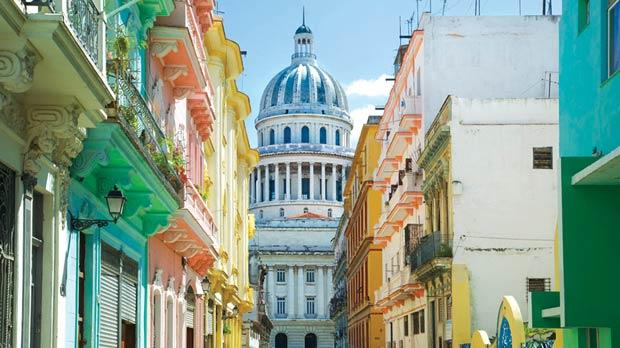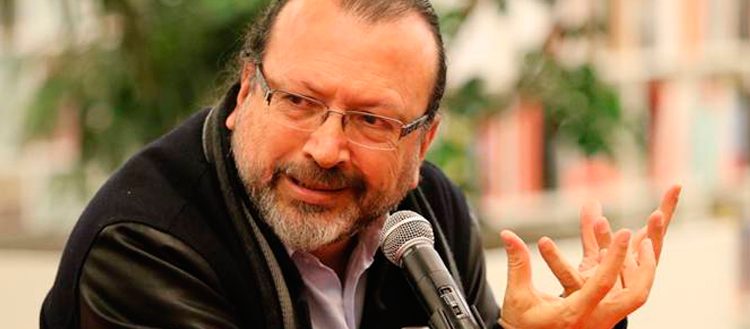
Cuba’s gains
(This article was published in Colombia’s El Espectador two years ago, January 2015, one month after Presidents Barack Obama and Raúl Castro took steps toward rapprochement between their two governments.)
*****
Now Cuba can look around and discover the gains of 50 years of dignity.
It is the only country in this continent that didn’t raze its magnificent architectonic patrimony. What was demolished in the rest of Latin America in a trivial fever of modernization, Cuba saved, not only because it didn’t have the materials to demolish it but also because those mansions with one owner and 100 slaves had become housing solutions for the poor.
Many will say that there was no need to tear them down because they collapsed on their own. I believe that what fell was toppled by the blockade, and it’s true that restoration was recently proceeding at a snail’s pace while decay leaped forward like a hare. But even so, Cuba saved more beautiful homes than any other country in the continent.
I have always thought that Cuba is the perfect site for a Latin American branch of the Guggenheim Museum that would attract millions of sensitive travelers. One thing Havana has plenty of is old passenger-ship terminals, any of which would be an ideal starting point for an institution of that type. Maybe culture can hasten the end of the blockade.

Cuba should first invest in efficient, non-polluting public transportation, to save what it gained involuntarily: clean air and the absence of traffic bottlenecks. Efficient cable-car networks and a modern railroad system can protect the island from the violent road congestion that today burdens Latin American cities, and correct in that natural paradise the consumers’ mistake of thinking that a family car (or more) is a solution to the needs of transportation.
In the early 1990s, Cuba discovered that tourism can be an important source of revenue when a country has privileged spaces — natural and historic. But tourism is a predator of spaces and a disturber of customs. Derek Walcott has told us the difference between the tourists, who seek the apparent and the exotic, and the true travelers, who not only look and consume but also love and protect the world. Like Amazonia, Cuba should be a destination more for travelers than for tourists.
The fact that we did not go through the most polluting days of industry could allow Cuba to enter into an industrial process with all the caution of modernity. It could become a laboratory that produces material goods without degrading the environment, without fouling the waters and without contributing to climate change, which ravages the island with unavoidable hurricanes.
Cuba has saved the treasure of coexistence among neighbors and is an example of what a community of professionals committed to humanity can do. Its literacy brigades have helped everywhere and its doctors have played a prominent role in the fight against Ebola.
The brotherly decision to send medical brigades to Africa was undoubtedly one of the factors that moved Barack Obama to normalize relations. Perhaps only one descendant of Africa could understand that what was at play in Cuba in the past five decades was not a mere tussle between doctrines but the right of a country to make its own decisions, the dignity of a culture.
When I heard the news that Cuba and the U.S. were renewing diplomatic relations and that the days of the blockade were about to end, I thought a lot about Gabriel García Márquez. He was Cuba’s best friend. He was capable of dealing with Carlos Salinas de Gortari and César Gaviria to save Cuba from the abyss. He created a sort of club with the leaders of Mexico, Colombia, Venezuela, Canada, Spain and France to give oxygen to his beloved island.
The flowers that Fidel Castro sent to his funeral were not an official gesture but the voice of a grieving friend, because Gabo’s friendship was not just political solidarity; his heart was filled with “a Caribbean issue.”
Let me repeat that Cuba did not suffer the hell of criminality that strangles other countries’ present and future. The rights to food, housing, health and education are as basic as the right to life and I’m amazed that in countries that do not guarantee the humble people any of those rights, many tear their garments over what they call “the human rights situation in Cuba,” where those fundamental rights are guaranteed.
There is much hypocrisy. It existed in the early days, when the Revolution spread enthusiasm and generosity; it existed when Cuba became a strategic enclave in the Cold War; and it existed when a siege of hunger was imposed. But the Cuban Revolution dug deeply into the conscience and gratitude of its people, which allowed it to survive, whereas other so-called revolutions, like those in eastern Europe, did not
The regime was odious for those who lived in splendor for centuries in one of the pearls of this water-filled planet, but for countless Cubans it meant, for the first time, basic nourishment, exemplary health care, serious education and a roof overhead. That was something never enjoyed by the homeless of other barrios who for decades have fed criminality in Rio’s favelas, Medellin’s hills, the slums of the Federal District and the no-man’s-land along Mexico’s northern border.
“Who will pay for our model of opulence and injustice?” asked a magazine some years ago. “The children of the corn, the born killers, the sweet childhood in flames.”
(From the Colombian newspaper El Espectador.)

